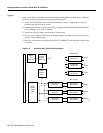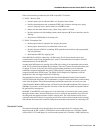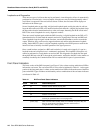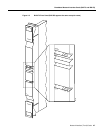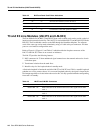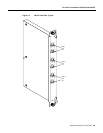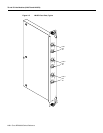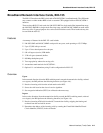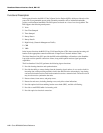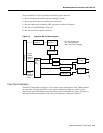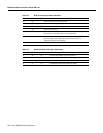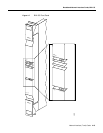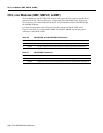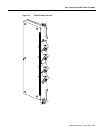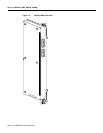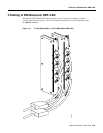
4-12 Cisco BPX 8600 Series Reference
Broadband Network Interface Cards, BNI-155
Functional Description
In the egress direction, the BNI-155 has 2 Queue Service Engine (QSEs) which provide each of the
ports with 12 programmable queues with selectable parameters such as minimum bandwidth,
priority, and maximum bandwidth. The BNI queues are based on a class of service algorithm. The
BNI supports the following trunk queues:
• Vo ice
• Non-Time Stamped
• Time Stamped
• Bursty Data A
• Bursty Data B
• High Priority (Network Management Traffic)
• CBR
• VBR
In the ingress direction, the BNI-155 has 2 Cell Input Engines (CIEs) that convert the incoming cell
headers to the appropriate connection ID based on input from a Network Address Table.
The Serial Interface Unit (SIU) provides the BNI with an 800 Mbps cell interface to the StrataBus.
It provides serial-to-parallel conversion of data, along with loopback and test signal generation
capabilities.
The Line Interface Unit (LIU) performs the following ingress functions:
• Provides framing detection and synchronization.
• Provides the ability to extract timing from the incoming signal, and use it as a receive clock for
incoming data, while providing transmit clock in the other direction. Alternatively, loop timing
can be used to turn the receive clock back around to be used as a transmit clock. The receive clock
may also be used to synchronize the node.
• Detects alarms, frame errors, and parity errors.
• Detects far end errors, including framing errors, and yellow alarm indications.
• Provides optional cell descrambling, header error check (HEC), and idle cell filtering.
• Provides a small FIFO buffer for incoming cells.
• Provides optical to electrical conversion.



